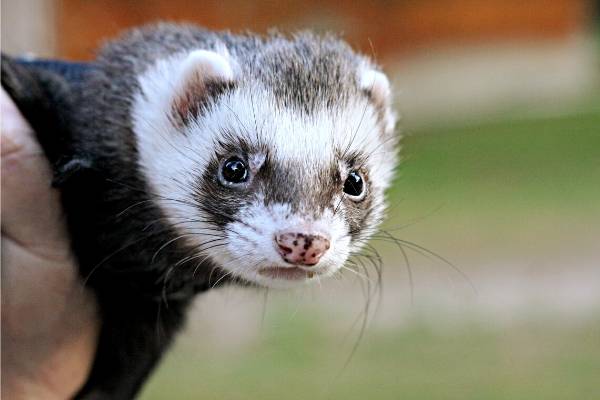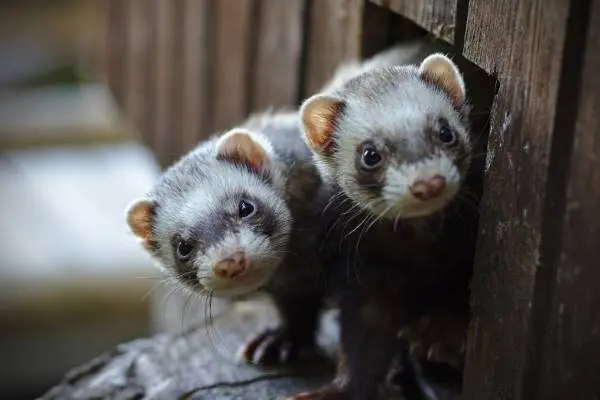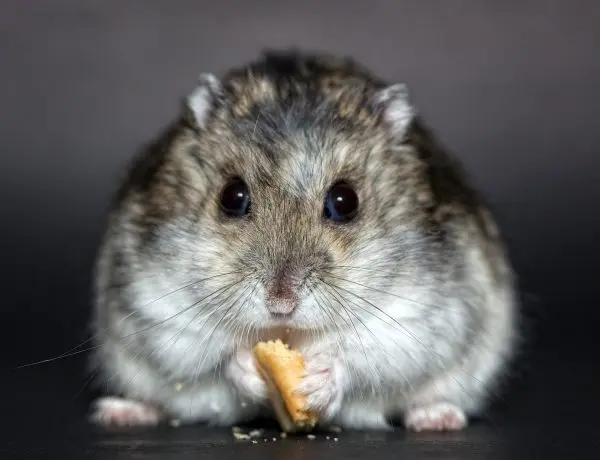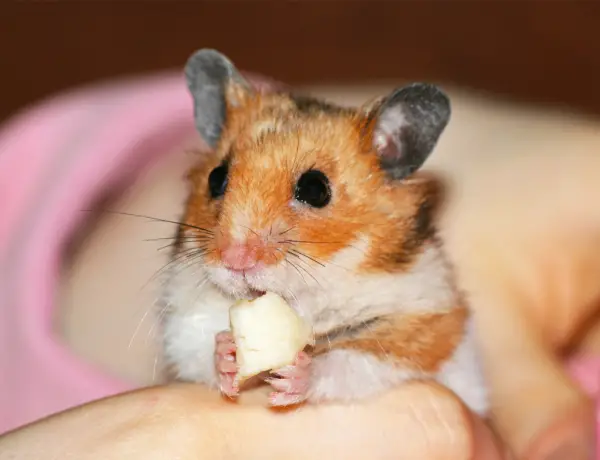We’ve all seen those adorable videos on the internet of pet parents letting their dogs and cats lick peanut butter from a spoon. With the yummy treat stuck to the roof of their mouth, they lick and seem pretty happy (but perhaps a little confused). Dog and cat parents love that the vitamin-rich food is packed with protein and vegetable fats. It also has various other health benefits that make it an attractive treat for pet owners – but is it safe for ferrets?
Can Ferrets Eat Peanut Butter? Despite being a nutritious part of a human diet, it is highly recommended to steer clear of giving peanut butter to ferrets. Naturally carnivorous animals, their digestive tracts cannot handle large amounts of salt and sugar – which is often found in high quantities in most conventional peanut butter.
If you’re considering treating your ferret friend to this deliciously nutty snack, you may just want to think again – it can cause some serious harm to the furry creature, and it can even be deadly! Here are a few reasons why peanut butter (and other common human foods) are dangerous for ferrets, as well as some safer alternatives.
Table of Contents
What’s the Problem with Peanut Butter?
So, what exactly happens if a ferret eats peanut butter? As previously mentioned, ferrets are a carnivorous species, which means their digestive tracts are strictly designed for animal proteins and don’t have a strong capability to process nut-butters.
A ferret’s stomach is very basic with short intestines and lots of fast-acting acids. And although small, it can hold quite a bit – up to 80% of a ferret’s meal is contained in the stomach cavity, and they can digest simple carbs and proteins in as little as 2 hours!
Despite this, however, their digestive systems’ structure makes it nearly impossible for them to break down complex carbs, processed foods, or high fiber content.

You may be wondering about natural peanut butter with no added sugar or whole peanuts. This is still not good for your ferret because the creamy texture of even natural peanut butter is difficult for ferrets to swallow and digest properly. And, whole peanuts may cause them to choke and still present the same digestion issues as peanut butter.
Overindulgence in the fats found in both whole peanuts and peanut butter can lead to diarrhea and severe intestinal discomfort for your little guy. Ferrets just don’t do well with high amounts of non-carnivorous foods.
This means peanut butter isn’t the only human food you should be avoiding – it’s best to keep carrots, broccoli, leafy greens, chocolate, honey, dairy-based products, and pretty much all fruits off the menu, too. When consumed regularly, these foods can induce vomiting, and more seriously, trigger seizures, hypoglycemia, liver failure, and even certain types of cancers. Additionally, foods like onions and garlic can cause almost instant kidney failure, which can lead to death.
So What Foods Are Safe?
While a vet-approved diet formulated for ferrets is always your best bet, everyone likes to treat their pets to the occasional human-grade snack. Here are some much healthier alternatives to peanut butter (always remember these should be given to ferrets in moderation!):
- Egg Yolks are a great source of protein and a healthy, all-natural treat for ferrets. When serving them boiled (one of the best ways for eggs to be eaten by ferrets), make sure all of the shell and the egg white are removed; even a tiny piece of swallowed eggshell can cause intestinal discomfort for ferrets.
If you plan to scramble them, try a soft scramble on low heat with a minimal amount of oil (minimizing the oil helps keep the fat to protein ratio low). It isn’t recommended to serve fried eggs at all – the amount of processed oils it will soak up during the cooking process can pose a potential health risk.
Raw eggs can be eaten, so long as they’re as fresh as possible. And no matter the preparation, be sure to only give ferrets the yolk – raw egg whites can sometimes lead to biotin deficiencies.
- Fish is high in protein and some beneficial fats for ferrets. However, since it’s not a natural part of their diets, they may reject it merely because of the unpleasant taste or smell. Try giving them a small portion of cooked white fish, making sure to remove all bones (even the small ones!) as they can get stuck in their throats or stomachs.
Canned tuna is another excellent occasional seafood treat for ferrets. Make sure to feed them tuna that is as fresh as possible and has no added seasonings or preservatives (look for only two ingredients: tuna and water). And don’t let your ferret gorge themselves on the entire can – just a few pieces will do.
Similar to canned tuna, canned salmon is also a good option for an occasional treat; always make sure it’s unseasoned and as fresh as possible and mercury-free. This should be given in small increments to ensure healthy digestion – and no super smelly poop!
- Chicken is a great treat or even semi-regular addition to your ferret’s diet. High in protein and low in carbs makes it easily digestible; just make sure to skip the seasonings. Also, it is better served cooked, and always cut it into small pieces.
The Ferret Diet
As mentioned before, to keep your little buddy happy and healthy, the bulk of their diet should be a vet-approved, high-quality ferret formulated food. So, what does that look like?

Meat is the most essential part of the ferret diet. A high-quality ferret food will be rich in protein, sugar-free, and low in carbs and dietary fiber. If you don’t have access to ferret formulated food, great alternatives are plain cooked meats, baby foods that are high in meat protein – and if you’re in a pinch, they can even be fed some high protein, low carb kitten food!
Here’s a basic breakdown of a balanced ferret diet. It should contain between 30 to 35% meat proteins with 18% to 25% fat (it’s recommended that ferrets 5 to 9 years old keep fat intake low, while younger ferrets aged 5 years and below can consume higher amounts). You should keep carbs and fiber low, at less than 3%. And the most essential vitamins for ferrets are A, D3, and E.
Feeling overwhelmed? Not to worry! Here are some of the best ferret foods on the market:
- Wysong Epigen 90 Digestive Support Dry Ferret Food is starch-free and contains an excellent protein to fat ratio with essential probiotics, prebiotics, and enzymes that aid healthy digestion.
- Marshall Premium Ferret Food is fit for all ferret breeds and sizes. It’s completely gluten-free and dense with organic animal protein and vitamin A.
- ZuPreem Grain-Free Diet Ferret Food is made with real chicken and egg protein. There are no corn or corn by-products, and it keeps fats low and vitamins and protein high.
Final Thoughts on Treating Your Ferret Without Peanut Butter
A ferret’s diet may feel very high maintenance (and sadly, you won’t be taking any of those viral videos of your furbabies eating peanut butter from a spoon anytime soon). However, there are still plenty of delicious and nutritious treats to give your ferret. Not to mention, fantastic ferret formulated foods to keep them happy and healthy.
So, the next time you’re looking to spoil your ferret with some human food, try some of the recommendations, and your little guy will be sure to come back begging for more!




